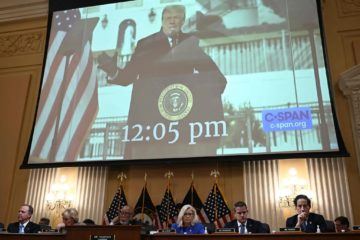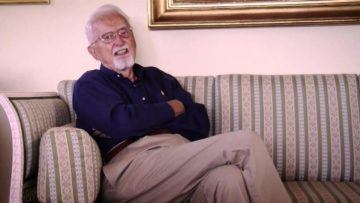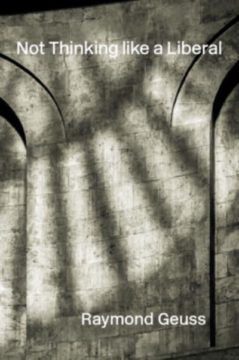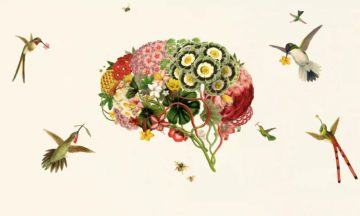Maureen Dowd in The New York Times:
 It never for a moment crossed Donald Trump’s mind that an American president committing sedition would be a debilitating, corrosive thing for the country. It was just another way for the Emperor of Chaos to burnish his title. We listened Thursday night to the frightful catalogue of Trump’s deeds. They are so beyond the pale, so hard to fathom, that in some ways, it’s all still sinking in. The House Jan. 6 committee’s prime-time hearing was not about Trump as a bloviating buffoon who stumbled into the presidency. It was about Trump as a callous monster, and many will come away convinced that he should be criminally charged and put in jail. Lock him up!
It never for a moment crossed Donald Trump’s mind that an American president committing sedition would be a debilitating, corrosive thing for the country. It was just another way for the Emperor of Chaos to burnish his title. We listened Thursday night to the frightful catalogue of Trump’s deeds. They are so beyond the pale, so hard to fathom, that in some ways, it’s all still sinking in. The House Jan. 6 committee’s prime-time hearing was not about Trump as a bloviating buffoon who stumbled into the presidency. It was about Trump as a callous monster, and many will come away convinced that he should be criminally charged and put in jail. Lock him up!
The hearing drove home the fact that Trump was deadly serious about overthrowing the government. If his onetime lap dog Mike Pence was strung up on the gallows outside the Capitol for refusing to help Trump hold onto his office illegitimately, Trump said, so be it. “Maybe our supporters have the right idea,” he remarked that day, chillingly, noting that his vice president “deserves it.”
Liz Cheney cleverly used the words of former Trump aides to show that, despite his malevolent bleating, Trump knew there was no fraud on a level that would have changed the election results. “I made it clear I did not agree with the idea of saying the election was stolen and putting out this stuff, which I told the president was bullshit,” William Barr, Trump’s attorney general, said. Breaking from her father, Ivanka Trump — in a taped deposition — said she embraced Barr’s version of reality: “I respect Attorney General Barr. So I accepted what he was saying.”
More here.

 Alice Crary in Boston Review:
Alice Crary in Boston Review: Lance Taylor over at INET:
Lance Taylor over at INET: Robert Paul Wolff over at his website [h/t: Leonard Benardo]:
Robert Paul Wolff over at his website [h/t: Leonard Benardo]: 1982 isn’t your typical war film.
1982 isn’t your typical war film. H
H O’Dwyer had a great sense of humor,
O’Dwyer had a great sense of humor,  In 1990, at the Humanities Research Institute at University of California at Irvine, I found myself sitting next to Jacques Derrida at a lecture given by Ernesto Laclau. The topic was Antonio Gramsci. At the end of the talk, of which I understood frustratingly little, Derrida asked a question that took about 20 minutes to formulate. Laclau’s response was of equal length. This mattered, because the event was the only one open to the public (it was to be followed by an invitation-only seminar). Graduate students and professors packed the lecture hall and, like Laclau himself, deferentially hung on Derrida’s every word. But they never had time to speak. The episode struck me as symbolic of the reverence deconstruction commanded at the height of its influence — and also of the hierarchies, buoyed by awestruck puzzlement, upon which it rested.
In 1990, at the Humanities Research Institute at University of California at Irvine, I found myself sitting next to Jacques Derrida at a lecture given by Ernesto Laclau. The topic was Antonio Gramsci. At the end of the talk, of which I understood frustratingly little, Derrida asked a question that took about 20 minutes to formulate. Laclau’s response was of equal length. This mattered, because the event was the only one open to the public (it was to be followed by an invitation-only seminar). Graduate students and professors packed the lecture hall and, like Laclau himself, deferentially hung on Derrida’s every word. But they never had time to speak. The episode struck me as symbolic of the reverence deconstruction commanded at the height of its influence — and also of the hierarchies, buoyed by awestruck puzzlement, upon which it rested. People mainly notice the Moon looking bigger and closer when it is full and near the horizon. This is because your mind judges how big or small an object like the Moon is
People mainly notice the Moon looking bigger and closer when it is full and near the horizon. This is because your mind judges how big or small an object like the Moon is  Ever since the notion of the “Anthropocene” was proposed by two scientists, Nobel Prize-winning chemist Paul Crutzen and marine scientist Eugene Stoermer, in a newsletter article published in 2000 by the International Council for Science, this label for the current geological epoch has led two distinct but related lives. Considered the successor to the Holocene Epoch, the Anthropocene is characterized by human harm to the earth system, including global warming and ocean acidification, the dissemination of synthetic chemicals, the redistribution of life forms across the planet, and a prospective sixth mass extinction event. In one life, the Anthropocene has been a lightning rod for questions of political economy and power. In its other, it has served as a useful scientific heuristic, assimilating mountains of measurements and calculations.
Ever since the notion of the “Anthropocene” was proposed by two scientists, Nobel Prize-winning chemist Paul Crutzen and marine scientist Eugene Stoermer, in a newsletter article published in 2000 by the International Council for Science, this label for the current geological epoch has led two distinct but related lives. Considered the successor to the Holocene Epoch, the Anthropocene is characterized by human harm to the earth system, including global warming and ocean acidification, the dissemination of synthetic chemicals, the redistribution of life forms across the planet, and a prospective sixth mass extinction event. In one life, the Anthropocene has been a lightning rod for questions of political economy and power. In its other, it has served as a useful scientific heuristic, assimilating mountains of measurements and calculations. Americans love to look on the bright side. We process our traumas and congratulate ourselves on our resilience. We like to crown ourselves winners, avoiding the stigma of the L-word deployed by a certain ex-president. The triumph of the therapeutic, as Philip Rieff called it, even applies to our anti-free-speech college students, who gain vituperative strength from the harm supposedly inflicted on them by other people’s disagreeable opinions.
Americans love to look on the bright side. We process our traumas and congratulate ourselves on our resilience. We like to crown ourselves winners, avoiding the stigma of the L-word deployed by a certain ex-president. The triumph of the therapeutic, as Philip Rieff called it, even applies to our anti-free-speech college students, who gain vituperative strength from the harm supposedly inflicted on them by other people’s disagreeable opinions. Financial literacy — the ability to understand how money works in your life — is considered the secret to taking control of your finances. Knowledge is power, as the saying goes, but information alone doesn’t lead to transformation. In putting financial literacy above all else, many in the personal finance industry have decided that repeating the same facts about how much money folks should have in their emergency savings account will, somehow, change people’s money habits. This approach doesn’t account for our human side: the parts of us that crave connection, new experiences, and fitting in as members of our communities. Most of our decisions around money are emotional; no amount of nitty-gritty knowledge about interest rates will change that.
Financial literacy — the ability to understand how money works in your life — is considered the secret to taking control of your finances. Knowledge is power, as the saying goes, but information alone doesn’t lead to transformation. In putting financial literacy above all else, many in the personal finance industry have decided that repeating the same facts about how much money folks should have in their emergency savings account will, somehow, change people’s money habits. This approach doesn’t account for our human side: the parts of us that crave connection, new experiences, and fitting in as members of our communities. Most of our decisions around money are emotional; no amount of nitty-gritty knowledge about interest rates will change that. Let’s consider where AI poetry is in 2022. Long after Racter’s 1984 debut, there are now scores of websites that use Natural Language Processing to turn words and phrases into poems with a single click of a button. There is even a tool that takes random images and creates haikus around them. You can upload an image of – say, a tree – and the tool will create a simple haiku based around it.
Let’s consider where AI poetry is in 2022. Long after Racter’s 1984 debut, there are now scores of websites that use Natural Language Processing to turn words and phrases into poems with a single click of a button. There is even a tool that takes random images and creates haikus around them. You can upload an image of – say, a tree – and the tool will create a simple haiku based around it.